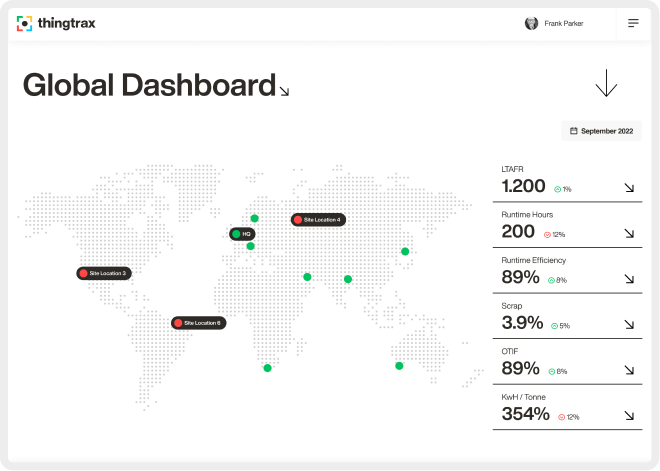Tips on Valuing Your Business

by Startacus Admin

Tips on Valuing Your Business
At some point you are likely to need to know the value of your business. Perhaps you are looking for investment, selling the business, or taking on a partner. In these cases and more, your business’ value will obviously need to be determined accurately and honestly. This is perhaps a little harder for small businesses, but there are a few ways to do it.
Asset-based
This method is better suited to larger businesses, but is arguably the most reliable. You will arrive at your valuation by calculating the value of physical assets such as your building, computers and other machines, inventory and prototypes, etc. Assets need to be valued at the current rate, of course, without depreciation or appreciation. Since any employees you have are likely to be sticking around, figure them into your valuation - they are often a company’s most valuable assets, after all.
Added to this is the more intangible, like your actual brand value, patents, and trademarks. Customer contracts are valuable too, so these need to be taken into account. Take from all this total liabilities.
It would be quite rare for a small business - especially a startup - to be in a position to be valued in this way. Physical assets are likely to be no more than a couple of computers and perhaps a product, and starting out, there will be little value to your brand.
 Cash flow analysis
Cash flow analysis
This is probably the best way of valuing a business, but it is far more complicated than an asset-based valuation. Mistakes can be made fairly easily, which is perhaps why the asset method is favourable. This method will require you first to forecast expected revenue and outgoings to calculate an estimated net profit. This is easily done by taking you annual average, deducting any one-off costs, and factoring in additional costs/gains that you know the business will encounter in the future.
This forecast will be run for about five years. Next, you will calculate the terminal value and apply a discount rate according to the risk level of your business and TVM (the time value of money).
Rule of thumb
You’ll have to be careful with this one, as it can be easy to over- or under-valuate the business. First you reassess your last full year’s accounts to calculate the net profit. Then you determine the industry standard multiple for your business category by which to multiply this profit.
It’s a good idea to find a recently-sold business as similar to yours as possible, and find out the value of the transaction for comparison.
Entry valuation
Another way to determine the value of your business is to start again and calculate what it would cost to build up your business from scratch. This includes all costs such as developing the products or services, purchasing assets, recruitment and training, marketing to build the brand to its current point, and so on.
This method is most useful if you are selling the business, as it will help the potential buyer decide whether it is better to buy your business or invest money in developing/starting its own.

Some further considerations
It may be a good idea to get a few accountancy or finance firms to put a price to your business. Relying on your own valuation might not be wise.
Use as many methods as are relevant to your business in order to ensure you reach a reasonable value. Bear in mind that whoever you are valuing it for will be doing their own calculations, and they might not use the same method as you, so at the very least you should understand how they came to their valuation.
Assess the market, considering your competition, industry changes, anything that might threaten or benefit your price, as well as the impact of your own business within the market.
Be wary when using a similar business for comparison. Don’t overvalue your business by comparing it to a more successful one. Only use this as a base for your valuation, or as a double check.
Overall, you must be realistic and honest. You will almost certainly consider your business to be worth more than it is, but don’t let that affect your valuation.
Subscribe to our newsletter
If you would like to receive our startup themed newsletter, full of the latest startup opportunities, events, news, stories, tips and advice, then sign up here. How Manufacturing Businesses Can Reduce Energy Costs
How Manufacturing Businesses Can Reduce Energy CostsGot a business in the manufacturing sector? These tips on how you can reduce energy costs while being more sustainable are well worth a read...
 SureIn Secures €4M to Close the SMB Insurance Gap
SureIn Secures €4M to Close the SMB Insurance GapInnovative InsurTech startup SureIn announces a €4M Seed round to further its mission of making insurance easy, transparent and hassle-free for SMBs.
 How IoT Is Revolutionising Consumers' Daily Lives
How IoT Is Revolutionising Consumers' Daily Lives Nassia Skoulikariti, Director of IoT Programmes, Mobile Ecosystem Forum shares some insights on how IoT is having a significant impact on all our lives.
 How to invest in tech companies with the help of AI
How to invest in tech companies with the help of AIRoger James Hamilton, Founder and CEO of Genius Group, a world-leading entrepreneur Edtech and education group, discusses how introducing a globalized curriculum will help better prepare students.
 SuperFi raises $1M pre-seed funding round
SuperFi raises $1M pre-seed funding roundSuperFi, the debt prevention platform, has announced a $1m pre-seed funding round to support people during the cost of living crisis.
 Startups rely on AI & sustainability for new partnerships
Startups rely on AI & sustainability for new partnerships41 startups from 13 countries, including the UK, have been selected for the 8th Kickstart Innovation program, one of Europe’s leading innovation platforms.
 Another Round closes £300k Seed round to revolutionise personal training
Another Round closes £300k Seed round to revolutionise personal trainingPersonal training platform Another Round has secured £300k in its latest fundraise, including investment from angels and its community.
 Thingtrax Secures £4.3M
Thingtrax Secures £4.3MThingtrax Secures £4.3M to Empower Manufacturers to Build the Factories of the Future
 A measure of inflation relief for small firms
A measure of inflation relief for small firmsA measure of inflation relief for small firms sees transport costs fall but service price increases remain elevated
 A look at HR tech startup HR DataHub
A look at HR tech startup HR DataHubBedfordshire-based HR tech startup HR DataHub has built a range of tools for HR departments
Published on: 20th September 2016
If you would like to enable commenting via your Startacus account, please enable Disqus functionality in your Account Settings.







- SureIn Secures €4M to Close the SMB Insurance Gap 15th Aug 2023 Innovative InsurTech startup SureIn announces a €4M Seed round to further its mission of making insurance easy, transparent and hassle-free for SMBs.
- SuperFi raises $1M pre-seed funding round 28th Jul 2023 SuperFi, the debt prevention platform, has announced a $1m pre-seed funding round to support people during the cost of living crisis.
- Startups rely on AI & sustainability for new partnerships 27th Jul 2023 41 startups from 13 countries, including the UK, have been selected for the 8th Kickstart Innovation program, one of Europe’s leading innovation platforms.
- Another Round closes £300k Seed round to revolutionise personal training 21st Jul 2023 Personal training platform Another Round has secured £300k in its latest fundraise, including investment from angels and its community.







 Daniel Dierkes, David Schara, and Maximilian Geißinger 2.jpeg)

.jpg)




















